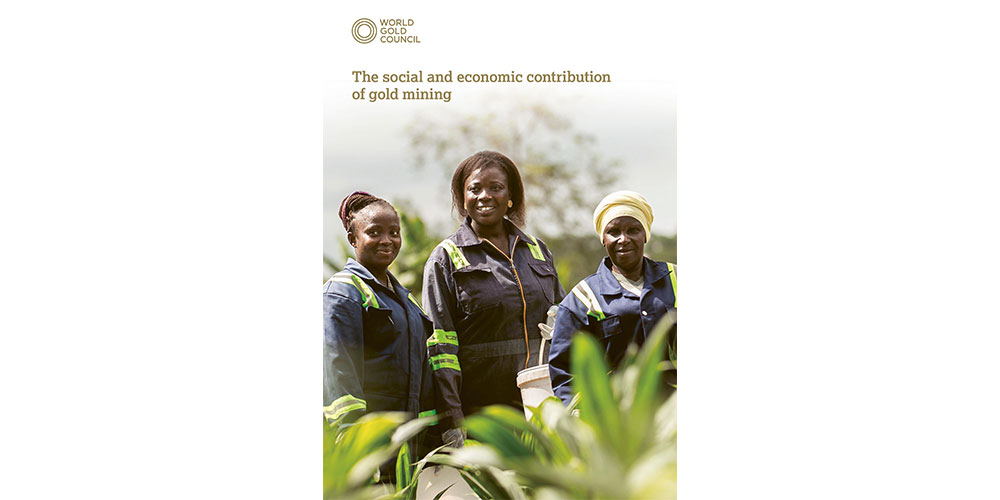A new report by the World Gold Council (WGC) highlights the role of its members, consisting of leading gold mining companies, in contributing to socio-economic development in the countries and communities where they operate. Collectively, WGC member companies contributed $37.9 billion to the GDP of the countries where they operate in the form of taxes, salaries and payments to suppliers. This represented 63% of the total revenue they received from gold sales and equates to almost $1,100 in value added locally for every ounce of gold produced.
WGC member companies employed 200,000 people directly, 95% of whom were nationals of the host countries. In addition, these companies supported an additional 1.2 million jobs through local suppliers. Wages among WGC member companies are on average six times higher than the national average. Furthermore, for every dollar spent on imports, close to five dollars were spent on local sourcing.
The Social and Economic Contribution of Gold Mining report was based on data provided by 31 World Gold Council member companies. The WGC collaborated with research partner, Steward Redqueen, who used an econometric input-output model, which quantifies financial flows between economic sectors, to calculate the industry’s indirect impact and overall value added. The analysis combined financial data from WGC members with macro-economic and employment statistics from publicly available country datasets.
Key highlights of the report include:
• In 2020, WGC member companies directly paid $8.7 billion in employee wages and $7.6 billion in tax payments to governments in 38 countries where they operate.
• On top of this, direct payments of $26.0 billion were made through in-country procurement and the resulting indirect value added was estimated at $21.6 billion to local suppliers.
• In 2020, the GDP contribution of WGC member companies and their supply chains in countries heavily reliant on gold mining is comparable to the quantum of Overseas Development Assistance those countries receive.
• In 2020, WGC member companies directly employ close to 200,000 people and support a further 1.2 million jobs through their local suppliers. These 1.4 million jobs induce another 700,000 jobs in local economies. In other words, every job in the gold mining industry supports six more, or close to ten more if induced jobs are included.
• A strong focus from WGC member companies on local hiring in recent years has led to demonstrable results, with local employees making up 95% of the workforce, halving the percentage of expats in the workforce (from 10% to 5%) over the past 7 years.
• Gold mining employees are well paid. Wages among WGC member companies are on average six times higher than the national average.
• The industry continues to evolve and improve its ESG performance, as reflected in the adoption of the Responsible Gold Mining Principles by all WGC member companies and several other leading gold miners.
• In 2020, WGC member companies contributed $438 million to communities and Indigenous groups.
Sandeep Biswas, CEO Newcrest Mining and Chair of the World Gold Council ESG Taskforce said: “Responsible gold mining companies boost local economies by creating well paid local jobs, making significant tax payments and creating valuable long-life infrastructure. Investments made by the gold sector will continue to deliver long-term benefits to local communities, extending to well after mine life ends.”
Terry Heymann, Chief Financial Officer at the WGC, added: “We believe that this comprehensive data set can help provide further transparency into the contribution made by the responsible gold mining sector. The report also provides further evidence of the important contribution made by this industry in advancing the UN Sustainable Development Goals.”

